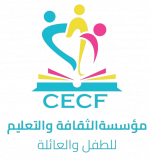Ana wa Nahnoo
AwN, a program of the Culture and Education for the Child and Family Foundation, is a unique, interactive program built on strong scientific basis which, through many questions, stories, art, play and sport, teaches cultural values and life skills. It teaches in particular 90% of the values and skills which were reported by the Culture Matters Group of Harvard University to be associated with societies that are either “economically developed” or “prone to be economically developed”. These values and skills include order, discipline, work ethics, saving, punctuality, rule of law, accepting the different other, honesty, responsibility, achievement etc.
AwN which was designed specifically for our part of the world, addresses many of its issues like tribalism, and the saying “I am with my brother against my cousin and with my cousin against the stranger”. It consists of four parts taught to children and youth over a period of 2 years or 4 semesters:
Part I (Ana ME) fosters self-value, teaching children and youth to be organized, to have goals, to get acquainted with the 3 aspects of their self: past (personal history, stories of grandparents), present (observation, honesty with oneself), and future direction (having goals), to be observant, show emotional intelligence, honesty with oneself, imagination, empathy, have a live conscience, etc..
Part II (Ana wa Nahnoo Assasseyat we Maharat) helps develop the fundamentals of the relationship of Ana to Nahnoo, such as respect, being entrusted with one’s body, one’s time, the importance of savings, work ethics, and differentiating real love from falling in love (Erich Fromm).
In Part III (Ana wa Nahnoo Ikhtilafoona wa Tawasooloona), having delineated the basics of the relationship between Ana and Nahnoo, AwN shows the advantages of accepting differences (Howard Gardner’s multiple intelligences) or not accepting them (Edward Banfield’s amoral familism, tribal wars in Kenya and Rwanda, Civil Rights Movement, Martin Luther King and Rosa Parks).
In Part IV (Ana wa Nahnoo Mogtama-oona) AwN takes the children and youth to the resultant society where they love their country unconditionally, care for the environment, separate of power and responsibility, differentiate the public and private, and prepare a project for their community.
AwN was applied in public and private schools, culture palaces, libraries and youth centers in 12 governorates1 with more than 9,000 children completing all 4 parts of it. It was also applied in Almahra governorate of Yemen based on the recommendation that the specialist in jihady thought from Oxford University Dr. Elisabeth Kendall gave to Almahra Tribal Council. The choice of AwN was based on the program potentially immunizing children and youth against jihady ideology by developing their sense of self-value and their thinking.
Close examination of our culture and the cultural values and life skills associated with economic development shows that our culture lacks to a large degree in these values and skills. Because cultural elements start being ingrained in early childhood they are difficult to change; we know that they may be a main cause in our delay in economic development yet we ignore their potential role because they are not easy to change. So AwN tries to overcome the difficulty of adopting the values and skills associated with economic development by having the children or youth adopt 2 new effective techniques in addition to the standard methods of discussing the concepts and expressing them by art, play, or even sport.
The first new technique is the “living of values”: for example youth who learn “punctuality” observe for a week if they have been punctual, if others have/have not, their feeling about their application etc. The second technique is the “inclusion of supporting concepts”: for example, for “saving” as a main concept, AwN presents “planning”, “working with goals”, that both the main and supporting concepts are “expressions of the look to the future”, and that “man not animals work with goals and plan for the future”. The supporting concepts and their connections to the main concepts help all these concepts take root in youth and help the effects of values and skills of economic development last longer.
In fact, an independent study2 conducted in 2012-2013 by the specialist Hana Fahmy indicated that 2 years after completion of the Program it was still effective in changing both children and facilitators. And a 2022 study3 by scientists from Cairo University demonstrated that youth who completed AwN program up to 6 years earlier still showed a positive impact in developing the concepts and skills of self-management, dealing with others, forming relationships, and that it led to a higher level of preparedness for social development and of readiness for economic growth.
Presentations about the AwN Program and CECF were made at 5 international conferences4. Of particular interest is the invitation in 2016 from the British Council in Dubai to Dr. Elmasry to present a workshop on “Reducing Inequality in Egypt”. She presented research on the cultural values and life skills promoted by the AwN Program which when adopted by disadvantaged children and youth predisposes them to succeed at work thus, potentially, reducing the economic gap between poor and rich in Egypt. This brings to mind the comment by a member of the Cultural department of the US embassy when AwN was being developed “Egypt needs this Program”.
